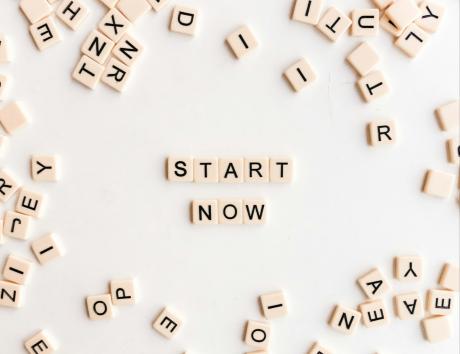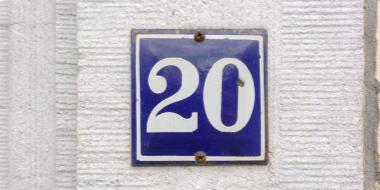Effective ways to start a resume: a step-by-step guide
When a hiring manager reads your resume, the first thing they’ll see is your introduction. Clearly, it’s important that you write a good one, as this is what will catch the hiring manager’s attention and convince them that the rest of the document is worth reading. Learn how to start a resume with a concise yet exciting introduction that spotlights your relevant skills, experience, and career goals.

Types of resume introductions
When it comes to resume introductions, the good news is you have a few choices. There are four main types of resume introductions, each with its own unique characteristics. Additionally, each one serves a different purpose and is suitable for a specific type of candidate.
The first type of introduction is a resume objective. Though many resume articles will tell you that you shouldn’t use these, they are quite helpful for entry-level candidates without much experience. (1) In one short statement, you’ll tell the hiring manager what you want to accomplish and what you have to offer that makes you a good fit for the role.
Once you have at least five years of experience under your belt and are moving into your mid-career years, you should consider using a resume profile as your introduction. You can format it with bullet points or as a paragraph. Either way, it should highlight how much experience you have, one or two things you’re best at, and what you’ve achieved in your career.
If you’re a career changer, it’s a good idea to use a summary of qualifications for your introduction. Instead of telling the hiring manager about what you need, you’ll highlight your transferable skills to show them how your past experience in a different industry has prepared you for a job in a new field. This introduction usually comes in the form of a short bulleted list of your relevant skills, personal traits, and accomplishments.
If you’re highly experienced in one industry, the resume summary is likely the best choice for an introduction. Your resume will contain a lot of information, and a hiring manager will appreciate having the highlights at the very beginning. You can include the number of years of experience you have, followed by a summary of your best accomplishments and any industry-specific certifications you hold.
Crafting a compelling resume introduction
Resume introductions allow you just a few lines of text to fully — and quickly — communicate your value as a candidate. Consider the following suggestions to ensure your introduction is succinct and highly relevant to the role you’re applying for.
Tailor it to the job description
A resume that is tailored to the job description paints a clear picture of your potential value to the company.
One of the best ways to customize your introduction for the position is to comb the job description for keywords related to skills and responsibilities and incorporate them into your resume introduction. This also helps you get your document through applicant tracking systems that may filter resumes based on certain phrases and keywords.
Highlight relevant skills
Though your resume format most likely allows for a dedicated skills section, you should also highlight your soft and technical skills — as well as your certifications — in your introduction. These should be aligned with the job description and relevant to the industry you want to work in.
This will help you keep your introduction succinct and highlight why you should be hired for this specific role. Provide examples of your accomplishments and use impactful action verbs to make an impression.
Expert Tip:
Writing your resume introduction
Your introduction has the power to make or break your job-hunting experience. It can help you land the interview or it can cause you to miss a chance at your dream job.
Here’s how to start a resume in a way that highlights your strengths, experience, and passion (in no more than one to three sentences) to show a hiring manager why you’re the perfect person for the role.
Resume introduction examples
Reading resume examples of different types of introductions can help you craft one that grabs the hiring manager’s attention and makes them want to know more. Here are several models that you can use as a starting point for your own application materials.
Resume objective example
Marketing assistant with 2+ years of experience working in an agency setting, including market research, campaign monitoring, content creation, and administrative support. Familiar with major CRMs, marketing automation tools, and project management platforms. Aiming to use my proven skills in a new role to contribute to productivity goals and ensure high-quality deliverables.
Resume profile example
Meticulous marketing manager with 8+ years of experience in both large and independent agency settings. Highly skilled in market research using varied resources for comprehensive data collection and in-depth analysis; trained a team of 25+ associates on the effective construction of customer surveys. Consistently achieve double-digit increases in client retention rates.
Summary of qualifications example
- Led client retention initiative to pivot from one-size-fits-all packages to customized a-la-carte style service offerings, resulting in a 43% increase in repeat business
- Detail-oriented personality that helps drive high productivity and accurate data analysis while remaining friendly and flexible at all times
- Fluent in three languages to serve customers from different parts of the city
Resume summary example
OMCP-certified director of marketing with 17+ years of experience leading large-scale corporate projects. Provides leadership to 200+ marketing associates and 10 marketing coordinators, managing a high six-figure budget and overseeing annual plans and marketing strategy. Consistently achieves a 10% conversion rate or better across marketing campaigns; obtained a Kellogg School of Management digital marketing certificate.
Tips when writing your introduction
Figuring out how to start a resume isn’t easy and requires a bit of thought. The following tips can help you streamline the process:
- Talk about your personal traits in addition to your technical skills
- Discuss any special skills or certifications that enhance your performance
- Use numbers to showcase the positive business impact of your work
- Highlight skills that hiring managers want to see, such as leadership, initiative, safety, teamwork, and cost savings
- Use resume and cover letter templates to get a sense of what an attention-grabbing introduction sounds like
Your introduction is a powerful tool, so keep these suggestions in mind to help you write a compelling one.
"Your introduction has the power to make or break your job-hunting experience. It can help you land the interview or it can cause you to miss a chance at your dream job."
Best practices for resume introductions
Your resume introduction is the first chance you get to make an impression on a recruiter or hiring manager. Here are a few best practices to help you make the most of this opportunity:
- Choose the right introduction type for your experience level
- Ensure your introduction is succinct by keeping it to one to three sentences
- Use a standard format so your resume looks and feels professional
- Avoid saving important accomplishments for the cover letter — include them in your resume introduction
- Get feedback from others in your industry to ensure your introduction is compelling
- Use keywords from the job description to keep your resume relevant and help it pass through applicant tracking systems
Putting these best practices to use in learning how to start a cover letter or resume will make your application polished and professional.
The right introduction can be the key that unlocks your dream job
A great resume introduction is crucial to ensuring the hiring manager sees you as a valuable candidate. Learning how to start a resume off the right way is all about choosing the best introduction format for your career stage. In one to three sentences, highlight your relevant personal traits and showcase quantifiable results and business impact.
As you think about what you want to include in your introduction, consider using a few resume and cover letter examples as your starting point. You can use this sample material as a baseline to help you craft a professional resume introduction that hiring managers can’t ignore.
Sources:
(1) Inc. Magazine: Your Resume Is Probably Embarrassing You. Here’s What to Fix Right Now
Impress potential employers with your resume
Follow step-by-step professional guidance to create a polished resume in minutes.



